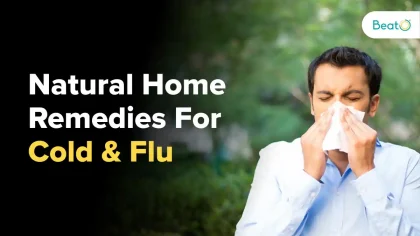Mumps are contagious viral infections caused by paramyxovirus. This virus affects the salivary glands, causing them to swell. Additionally, it affects the areas near the jawline. There was recently a mumps outbreak in Kerala, India, where 190 mumps cases were recorded in a single day. Recent reports have also shown that around 11,000 cases were recorded in January 2024. Here’s an overview of the causes, symptoms, and treatment of mumps.

Also read: Explained: What Is Bombay Blood Group? A Rare Phenomenon
What is Mumps?
Mumps is a viral disease spread through respiratory droplets or by direct contact with an infected person’s saliva. It causes noticeable swelling in the cheeks and is easily spread via coughs or sneezes. The symptoms, causes, and treatments are mentioned below. If not treated at the right moment, it may lead to more serious health issues such as encephalitis, oophoritis, meningitis, and orchitis. You need to prevent it through vaccination.
Understanding Mumps Causes
- Virus Transmission: The mumps virus is highly contagious and spreads through respiratory droplets when an infected person coughs or sneezes. Moreover, the viral disease mumps caused by paramyxovirus spreads through direct contact with an infected person’s saliva, such as sharing utensils.
- Crowded Places: Surroundings like schools, college campuses, and military barracks are common places for mumps outbreaks due to the close proximity of individuals.
Also read: Best Home Remedies For High BP You Might Not Know
What are Mumps Symptoms?
Mumps symptoms vary from person to person. However, common symptoms may include swelling of the salivary glands, prominently the parotid glands located near the jawline, a puffy face, headache, fever, tiredness, muscle pain, and lack of appetite. Read on to learn more about the symptoms of mumps.
- Swollen Salivary Glands: One of the major symptoms of mumps is swollen and tender salivary glands, typically on one or both sides of the face, giving the appearance of chipmunk cheeks.
- Fever: Fever is one of the common symptoms with mumps, often appearing a few days before the swelling of the salivary glands.
- Headache and Muscle Aches: These symptoms are often present, along with general feelings of fatigue and malaise.
- Loss of Appetite: Many individuals with mumps experience a decreased desire to eat due to the discomfort associated with swallowing.
Also read: 10 Hydrating Home Remedies For Dark Circles
Mumps Treatment
- Stay Isolated: Infected individuals should be isolated to prevent the spread of the virus to others, especially in settings where outbreaks occur.
- Care & Support: There is no specific treatment for mumps, and the treatment only focuses on relieving symptoms. Get enough rest, keep yourself hydrated, and also use pain relievers such as ibuprofen or acetaminophen to help alleviate discomfort and reduce fever.
- Issues Monitoring: While most cases of mumps resolve without complications, some individuals may experience rare complications such as meningitis, encephalitis, or orchitis (inflammation of the testicles in males). Monitoring for these complications is essential, especially in severe cases or in individuals at higher risk, such as adolescents and adults who have not been vaccinated.
- Get Vaccinated: The MMR (measles, mumps, and rubella) vaccine is highly effective at preventing mumps and must be given in two doses. Vaccination not only protects individuals from contracting mumps but also helps prevent outbreaks.
Also read: Simple Yoga Asanas To Reduce Belly Fat
Summing Up
The above-mentioned mumps symptoms, causes, and treatments are crucial to study. Moreover, preventing mumps outbreaks relies heavily on vaccination and good hygiene, such as frequent handwashing and avoiding close contact with infected individuals. If an outbreak occurs, prompt identification, isolation, and vaccination efforts are crucial to containing its spread. In addition, it is essential to contact medical professionals to monitor and prevent the condition.
Disclaimer: The content of this article is compiled information from generic and public sources. It is in no way a substitute, suggestion, or advice for a qualified medical opinion. Always consult a specialist or your own doctor for more information. Beato App does not claim responsibility for this information.
Are you looking for the perfect glucometer to check your blood sugar level? Try out BeatO smartglucometerkit, affordable and easy to use.
Discover top-tier diabetes care with BeatO’s Chief Clinical Officer,Dr. Navneet Agarwal. His expertise in Diabetes ensures personalised guidance for overall health. Try out a smartglucometerand keep track of blood sugar levels now.




